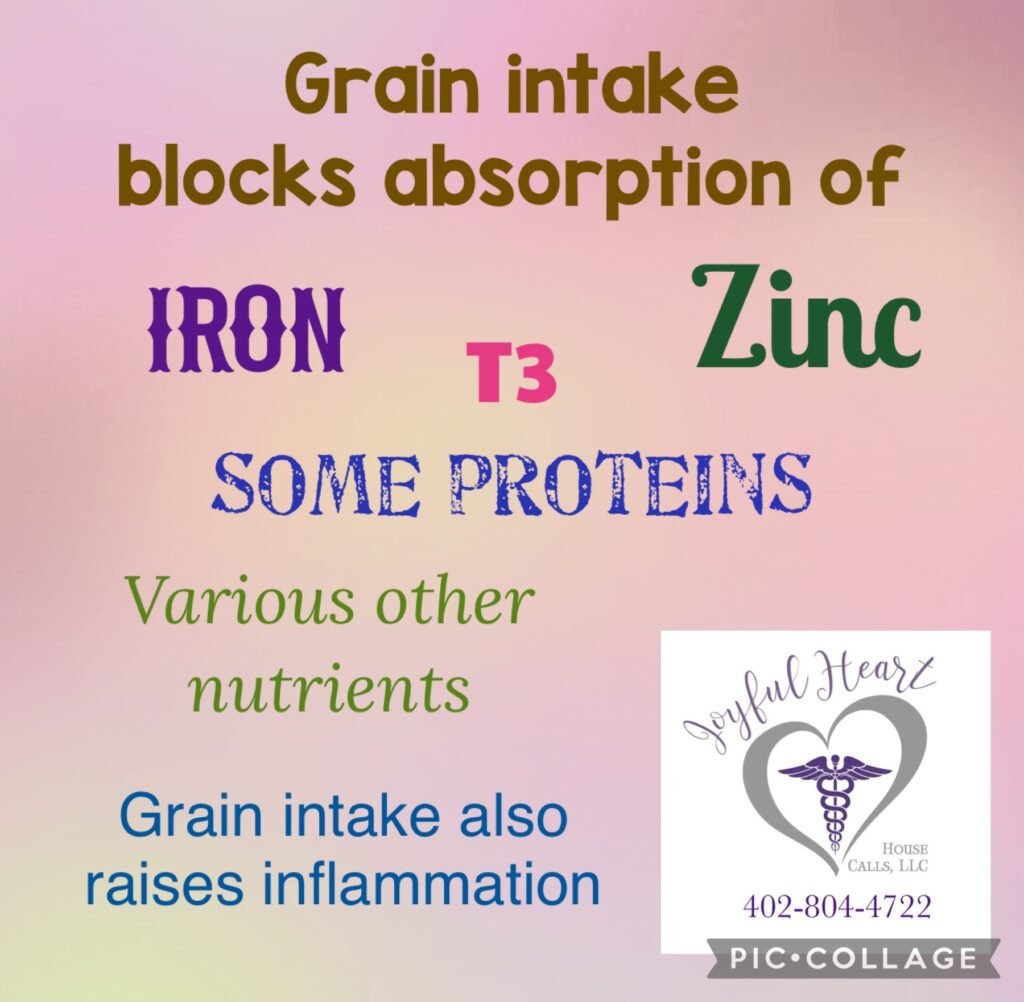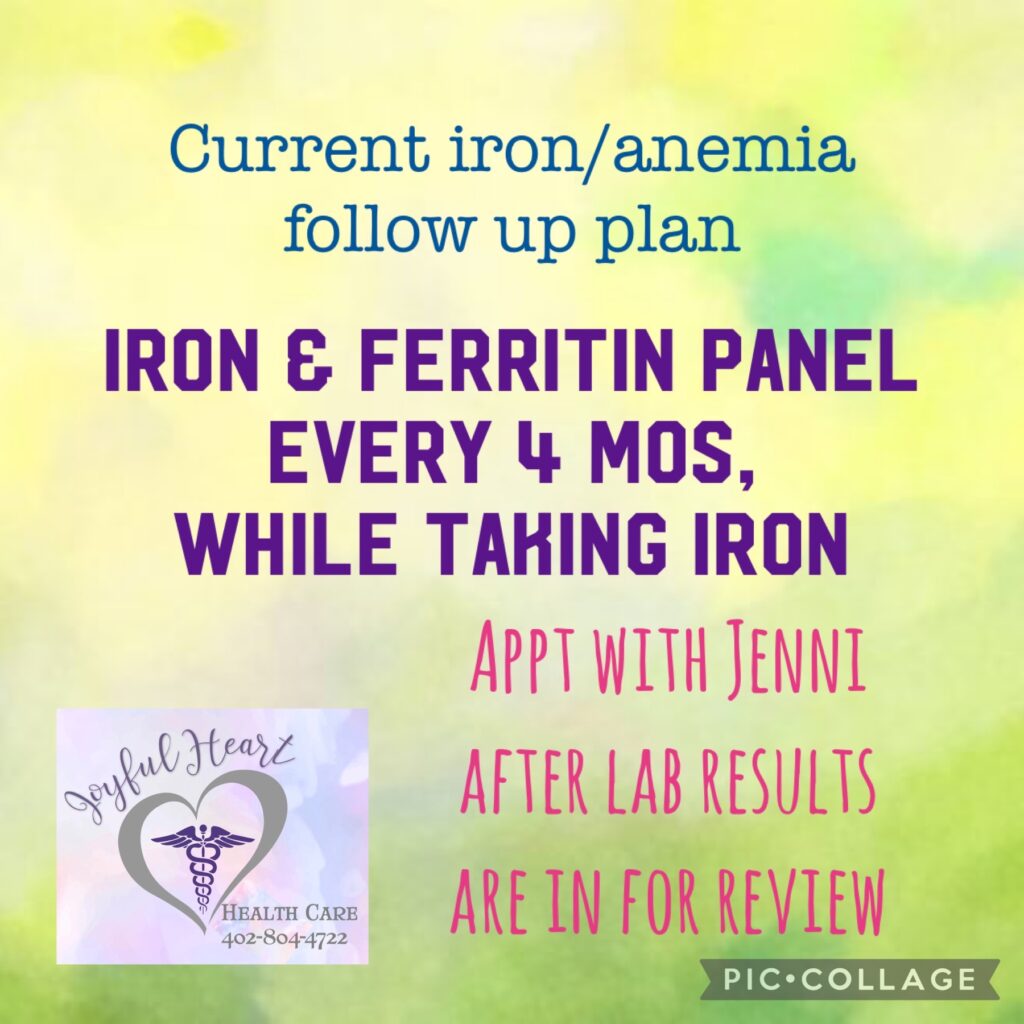The B vitamins also are important to our bodies; for one thing, many of us have been avoiding red meat for half a decade b/c we’ve heard it’s so “unhealthy”. Red meat is, by far, the best source of B12, iron, and protein, while most other meats contain very little to no B12 or iron. Red meat gets its color from IRON and so it makes good sense that we consume red meat regularly. PROCESSED meats are not as healthy – and THOSE should be limited; roasts, ground beef, steaks, etc. are not processed or chemical-laden and are not considered processed or dangerous. Vitamin B12 is mostly found in red meat and not much anywhere else. Also note that grains break down into phytates and will interfere/block iron and zinc absorption, so even if you eat a proper amount of red meat, it may not be going anywhere but to the toilet. This is just one reason I encourage a sugar-free/grain-free way of eating. What sense does it make to spend money on food and vitamins if we’re going to BLOCK the absorption of them? Another tip for B12 – if you know or suspect you have the MTHFR variant, then your body cannot “methylate” or divide the usual ingredients, cyanide & cobalamin. Cyanocobalamin is the most common form of B12 sold today. But it’s estimated that about half of us cannot use this form of B12 b/c we have the methylation defect associated with MTHFR genetic variation.
If you have the MTHFR variant, taking doses of cyanocobalamin will only result in high BLOOD levels of B12, but the B12 won’t go anywhere or do anything it’s supposed to. Most prescribers will see the elevated B12 level, and tell you to stop your B vitamins b/c you have more than enough; they don’t understand methylation or how this process works. It’s important for people WITH the MTHFR variant to take a methylcobalamin, hydroxycobalamin, or adenocobalamin instead of cyanocobalamin. B12 is useful in the body for a myriad of functions; B12 is a cofactor in DNA synthesis and in the metabolism of proteins & fats. It is also necessary for the production of myelin and essential for red blood cell development – also important for iron absorption & use.

Other recommended supplements for iron use may include ferrochel and vitamin C. Ferrochel is a form of iron that is much less troublesome to the gut; I recommend it over any other form of prescribed or OTC iron product. In addition, Vit C should be taken with every iron dose and with every meal of red meat. Vit C aids in the absorption, transport and use of iron and ferritin; ferritin is the storage form of iron on a specific protein transporter and is the form of iron used by red blood cells (RBCs). When the body needs new RBCs, the bone marrow gathers all the supplies/ingredients, and that includes ferritin. If ferritin levels are too low, the RBCs will NOT have adequate iron on them when they are created. Once the RBC enters the bloodstream as a baby RBC, it cannot have any new iron attached to it or added inside it; the system just does not work that way. It’s kind of like trying to attach a 5th tire to your car – there’s nowhere for it to fit; there’s no secure method of attaching another wheel/tire. SOOOOo, that means, baby RBCs that are born with less iron live about 100 days or so with LESS ability to transport oxygen around the body; this iron deficiency anemia is often missed by mainstream providers b/c they only look at the CBC, not iron and ferritin levels where this subtle anemia begins.

Mainstream medicine doesn’t “catch” anemia until the CBC is significantly impaired and symptoms are severe. If you are told to take iron, ferrochel is MUCH easier on the gut and easily absorbed. If you are told to take iron, NEVER take iron “unchecked” – always keep an eye on iron & ferritin levels; usually labs every 3-4 months are sufficient to monitor iron levels, but never go longer than 6 months without blood tests. Too much iron or iron taken over a long time WITHOUT LAB MONITORING can injure the liver. We don’t want to CAUSE disease by not monitoring. Moral: if you cannot get lab tests, then skip the iron for a while until you can get back to the lab.
It’s also important to note that anemia can create several unhealthy situations with regard to other medicines or conditions; anemia is a MAJOR stressor to the adrenal glands and the heart. BOTH organs can be impacted by lack of iron/oxygen; when adding liothyronine (thyroid meds) to the chemistry, nervousness, jitters, anxiety, heart palpitations, tremors and more can be triggered. It is vital to correct the anemia FIRST, BEFORE increasing liothyronine much at all! This is just one reason I teach patients to increase liothyronine VERY slowly – like every 3-4 WEEKS, not weekly as some thyroid “experts” may suggest. It’s just NOT safe!!!




